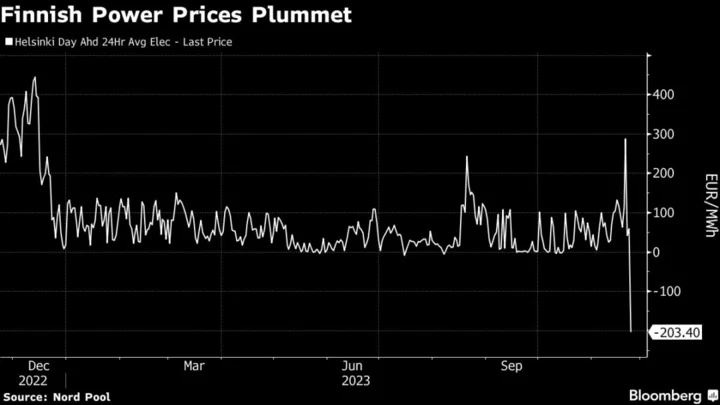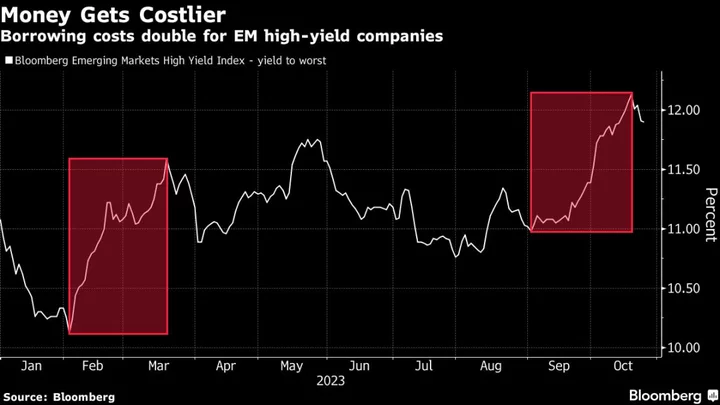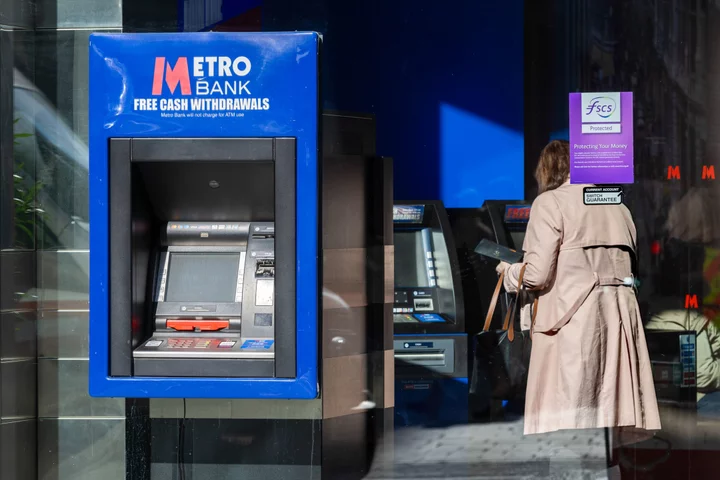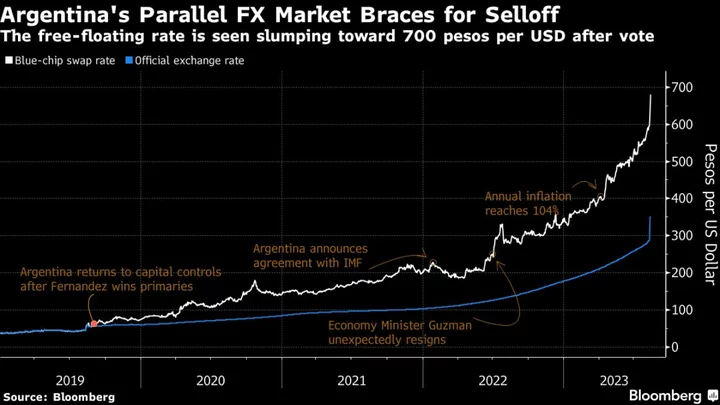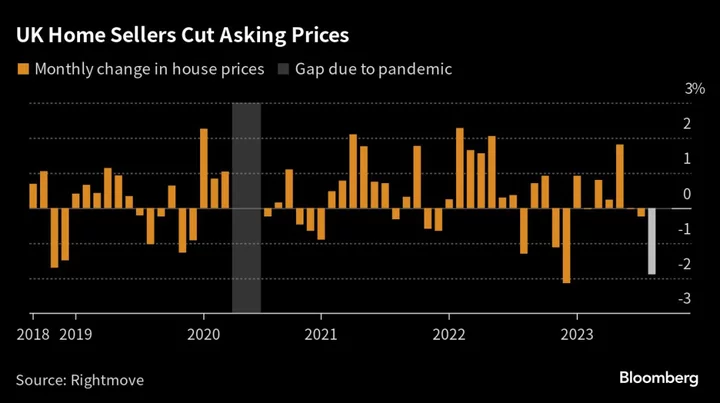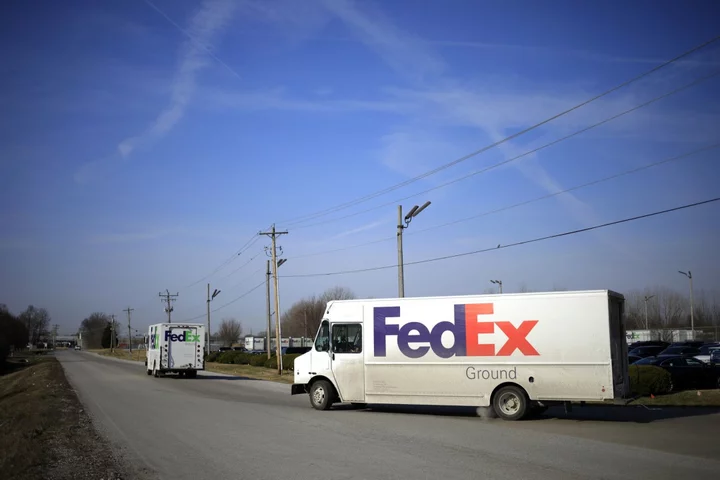An error by a trader caused Finnish power prices to plunge into negative territory on Friday, prompting the grid manager to ask the public to keep consumption at normal levels even as some of them are getting electricity for free.
As many as one in five Finnish consumers pay exchange prices, plus a margin, for power. For them, electricity costs nothing on Friday. Some also have automation set up to charge their electric vehicles or heat their homes when power is cheap, and such demand is likely to fire up today.
Intraday trading had helped to rebalance the market by the early afternoon, and network manager Fingrid Oyj resumed normal operations, according to regulatory filings. It had intervened earlier in the day, asking utilities to step in and supply extra electricity if needed on a short-term basis, and bought nuclear power on the market as a middleman, Unit Manager Jonne Jappinen said by phone.
Intraday trading from Finland to Sweden and Estonia resumed after a pause to keep the system stable, Fingrid said.
“Fingrid hopes that consumers will not react to the cheap electricity prices on the power exchange by increasing their consumption, but will act as they would on a normal Friday,” the company said in a statement late on Thursday. “In this way, consumers can help to balance production and consumption and prevent unnecessary system stress.”
The error sent shockwaves through the Finnish market as trader Kinect Energy AS mistakenly offered to sell the equivalent of about half the country’s entire usage at an hourly auction.
Kinect has been trading on the market on Friday to fix its position, Fingrid’s Jappinen said. Buying back the power will cost between €30 million and €50 million ($33 million to $55 million), according to market estimates. The Norwegian company didn’t respond to calls and messages seeking comment during regular business hours.
The faulty trades led to an average price of -€203 per megawatt-hour, compared with an average in the Nordic region of €35.28, according to Nord Pool. From 2 p.m. to midnight on Friday, the Finnish power price is -€500 per megawatt-hour, Nord Pool data showed.
Prices for Saturday were back at a more normal tariff for this time of year, settling at €72.39.
Kinect, a unit of World Kinect Corp., sold on average 5,787 megawatts from hour 1 to hour 24 for Friday delivery, according to a regulatory filing. That compares with current demand of about 12,000 megawatts in Finland, grid data show.
Read More: Trader Error Causes Huge Plunge in Finnish Power Prices
“We’ve had practice on how markets work since the late 1990s and such a situation has never been seen before,” Pekka Salomaa, director of energy market at industry group Finnish Energy, said by phone. “It’s a good question: how has the company allowed such an unusual batch of tenders to go through, and the second question is why were no alarm bells ringing at the market place.”
He suggested considering adding a second round of tendering in the exchange rules to catch similar errors in the future, as is done in Germany.
“What’s essential is that the market participant, Kinect, think through its own processes, but that also the Nord Pool process is reviewed to see what safeguards should be in place,” Salomaa said. “Maybe that could be a simple check — ‘are you really tendering this’ — or a block on trades that are simply excessive for that party.”
Nord Pool, the Nordic power exchange, welcomed the efforts of its members to counter the impact of the error by trading in the intraday and balancing markets.
“We are grateful for these continued efforts and encourage all members who find themselves affected by yesterday’s unfortunate events to continue to explore these methods to trade back into balance,” it said.
The latest official data, as of the end of 2022, puts the number of retail consumers with contracts linked to exchange prices at 14%. Salomaa said given the number has been growing, an “educated guess” would indicate around 15% to 20% now.
(Updates with comments from Fingrid, energy industry group from third paragraph)

